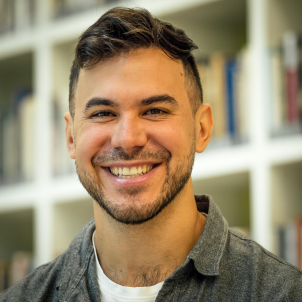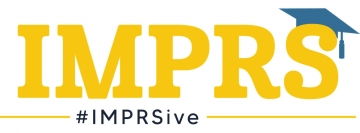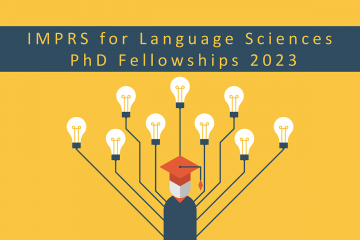Alex on knowing yourself
Name: Alex Titus
Department: Narrative, Cognition and Communication (Centre for Language Studies & MPI)
Research: Bilingual narrative stimuli in virtual reality
Started at the IMPRS: 2020
Nationality: American
How did you come to pursuing your research topic in Nijmegen?
During my first master in the US, I had a supervisor who had studied and worked at the Donders Institute on joint action perception. He noticed my passion for language research and suggested I consider furthering my studies at ‘the language research capital of the world’.
From the moment I started to review the cognitive neuroscience research master at Radboud and its connection with the Donders Institute and the MPI, I knew this was the ideal place for me to further develop my interests in all aspects of language. Overall, it has worked out better than I ever could have imagined as I have found a PhD position with my ideal supervisors across multiple institutes.
What are some of the highlights of your doctoral life so far?
One of the biggest positives I have experienced during the first half of my PhD has been the working combination of my three supervisors. Although that sounds like a lot, they are all at different stages of their careers and thus reveal different perspectives that shape my personal and career development. Working at the MPI offers me many learning opportunities through workshops, collaborations with colleagues from different labs/institutes, and teaching; these activities are encouraged right from the start to all PhDs. The cherry on top has been moving to the Netherlands itself. As an active person, being able to cycle everyday to work really helps energize me for work and also allows me to wind down at the end of the day.
It is important to remember you are choosing the program and research just as much as you're being chosen.
What advice do you have for peers or those considering doctoral studies?
My main suggestions for anyone considering doctoral training is first, know yourself. For example, do you need weekly supervisor and check-in meetings? Where are your weaknesses and in what areas would you like to improve as a researcher? What are your looking to get out of the doctoral training? These questions help inform the type of supervisors and lab groups that will best suit you to grow and learn. It is important to remember you are choosing the program and research just as much or perhaps even more than you're being chosen. There is no need to rush into anything you are uncertain about.



Share this page